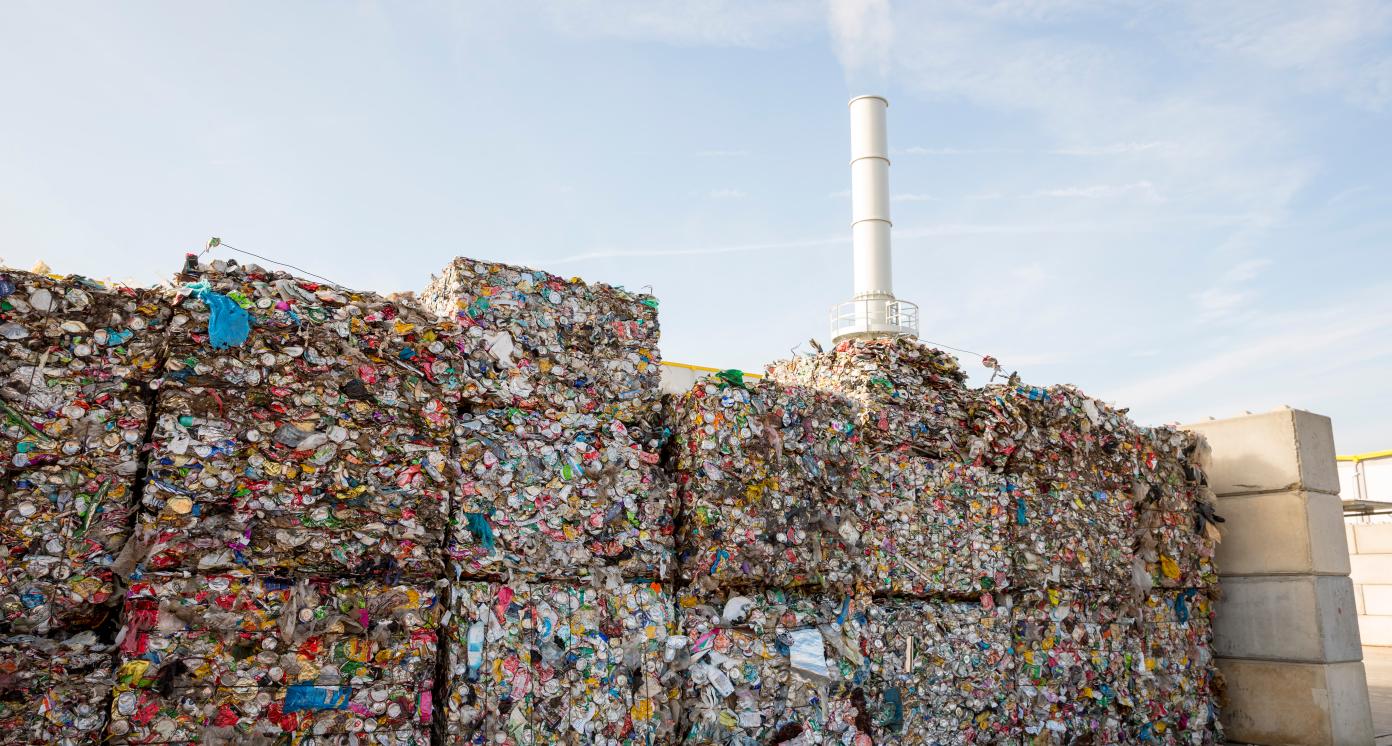Infrastructure and recycling systems and plants for the reuse of solid waste
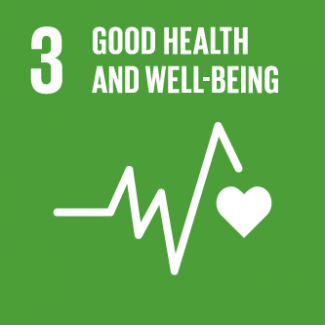
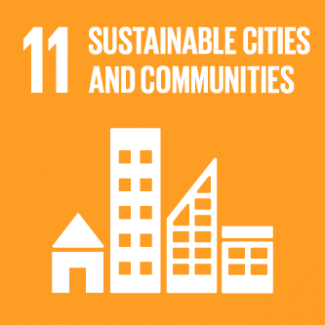
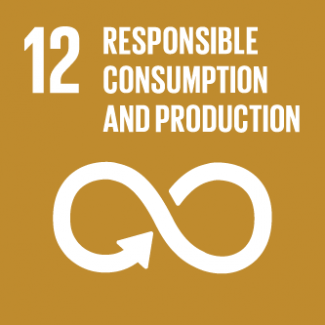
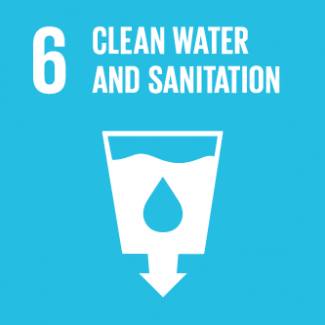
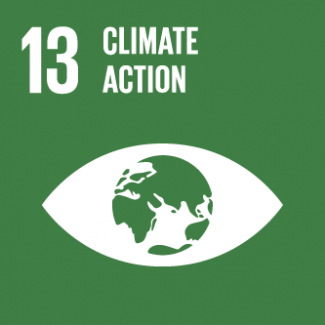
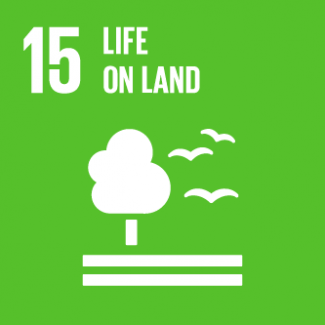
Business Model Description
Invest in infrastructure, systems and logistics for the collection, sorting and recycling of urban solid waste such as plastic, cardboard, tetra pak, glass and others: > Private investment for which investors build, operate and manage recycling plants and systems for reuse, making a profit from the provision of service, sale of recycled and reused material, or other models. This include partnerships with recyclers, thus encouraging the formalization of their work, training them, granting them microcredits, etc., so that the collection of the materials is carried out and becomes suppliers.
Expected Impact
Reduce environmental and health impacts caused by lack of solid waste collection and management
How is this information gathered?
Investment opportunities with potential to contribute to sustainable development are based on country-level SDG Investor Maps.
Disclaimer
UNDP, the Private Finance for the SDGs, and their affiliates (collectively “UNDP”) do not seek or solicit investment for programmes, projects, or opportunities described on this site (collectively “Programmes”) or any other Programmes, and nothing on this page should constitute a solicitation for investment. The actors listed on this site are not partners of UNDP, and their inclusion should not be construed as an endorsement or recommendation by UNDP for any relationship or investment.
The descriptions on this page are provided for informational purposes only. Only companies and enterprises that appear under the case study tab have been validated and vetted through UNDP programmes such as the Growth Stage Impact Ventures (GSIV), Business Call to Action (BCtA), or through other UN agencies. Even then, under no circumstances should their appearance on this website be construed as an endorsement for any relationship or investment. UNDP assumes no liability for investment losses directly or indirectly resulting from recommendations made, implied, or inferred by its research. Likewise, UNDP assumes no claim to investment gains directly or indirectly resulting from trading profits, investment management, or advisory fees obtained by following investment recommendations made, implied, or inferred by its research.
Investment involves risk, and all investments should be made with the supervision of a professional investment manager or advisor. The materials on the website are not an offer to sell or a solicitation of an offer to buy any investment, security, or commodity, nor shall any security be offered or sold to any person, in any jurisdiction in which such offer would be unlawful under the securities laws of such jurisdiction.
Country & Regions
- Paraguay: Alto Paraná
- Paraguay: Central
- Paraguay: Asunción
Sector Classification
Infrastructure
Development need
Needs persist in sanitation, housing, waste management and transport infrastructure. Improved sanitation reaches 50% of homes and the case of improved water to 79%. The housing deficit affects a significant swath of the population, as there is a current deficit of 800,000 homes. In terms of solid waste, most of the waste generated at the national level is not managed (I).
Policy priority
Infrastructure is one of the most important aspects of development policies, and Paraguay demonstrates this through the following policies: the Institutional Strategic Plan of the Ministry of Public Works and Communications (II), and the Master Plan of Transport 2013 (III).
Gender inequalities and marginalization issues
gender inequality in access to infrastructure is notable, especially in rural areas. Women face significantly lower rates of economic activity and labor market participation compared to men. In addition, women in rural areas live in vulnerable working conditions and without access to social security (IV).
Investment opportunities introduction
the main areas of investment opportunities were identified to address gaps in the sector, including: solid waste management, affordable housing, road and river infrastructure, and wastewater management (V).
Key bottlenecks introduction
due to the current infrastructure deficit, Paraguay presents High investment requirements on infrastructure deployment, approximately US$2.8 billion annually (VI).
Waste Management
Development need
The average rate of urban solid waste (MSW) generation in Paraguay is around 1.2 kg / person / day, varying between 0.5 and 1.5 kg / person / day. The percentage of households with garbage collection as of 2017 is 45%. Much of the waste generated at the national level is not managed (VII).
Policy priority
The Government has recognized the importance of sustainable municipal solid waste management as a key area to contribute to the well-being of the country's environment. In this sense, it has developed and implemented the National Plan for the Integrated Management of Urban Solid Waste and the National Plan for the Integrated Management of Hazardous Waste (VIII).
Gender inequalities and marginalization issues
gender inequality in access to infrastructure is notable, especially in rural areas. Women face significantly lower rates of economic activity and labor market participation compared to men. In addition, women in rural areas live in vulnerable working conditions and without access to social security (IV).
Investment opportunities introduction
the growing concern for the environment and sustainability in Paraguay offers a favorable environment for the development of efficient solid waste and waterwaste management projects in the country (IX).
Key bottlenecks introduction
due to the current infrastructure deficit, Paraguay presents High investment requirements on infrastructure deployment, approximately US$2.8 billion annually (VI).
Pipeline Opportunity
Infrastructure and recycling systems and plants for the reuse of solid waste
Invest in infrastructure, systems and logistics for the collection, sorting and recycling of urban solid waste such as plastic, cardboard, tetra pak, glass and others: > Private investment for which investors build, operate and manage recycling plants and systems for reuse, making a profit from the provision of service, sale of recycled and reused material, or other models. This include partnerships with recyclers, thus encouraging the formalization of their work, training them, granting them microcredits, etc., so that the collection of the materials is carried out and becomes suppliers.
Business Case
Market Size and Environment
< USD 50 million
According to INE data as of 2019, the number of households in the country is 1,860,000, of which 47% do not have private or public collection service (4).
The approximate trash price for a household is USD 5.25 (PYG 35,000) (5).
Indicative Return
> 25%
> The IRR of a project for a PET plastic waste recycling plant in Córdoba, Argentina, in 2014, was 29.15%, in a period of 5 years. (32)
Investment Timeframe
Short Term (0–5 years)
For a project for a PET plastic waste recycling plant in Córdoba, Argentina, in 2014, an evaluation horizon of 5 years was used, in which positive results began to be obtained after that time (6).
Market Risks & Scale Obstacles
Capital - CapEx Intensive
Impact Case
Sustainable Development Need
The average rate of urban solid waste (MSW) generation in Paraguay is around 1.2 kg / person / day, varying between 0.5 and 1.5 kg / person / day. The percentage of households with garbage collection as of 2017 is 45%. Much of the waste generated at the national level is not managed (7).
There is no waste dump in Paraguay that has the necessary technical requirements and the gap remains (8).
Less than 10% of waste is used, when in developed countries the recovery is 30% (9).
Gender & Marginalisation
Rural areas have lower access to waste collection and recycling.
Expected Development Outcome
Reduce soil and water pollution from solid waste.
Increase the proportion of municipal solid waste destined for recycling.
Increase the proportion of municipal solid waste with an adequate final discharge with respect to the total municipal solid waste generated
Satisfy the demand with inputs from the national economy (recycling), instead of importing raw materials.
Gender & Marginalisation
> Reduce inequalities in waste collection in rural areas
Primary SDGs addressed

3.9.1 Mortality rate attributed to household and ambient air pollution

11.6.1 Proportion of municipal solid waste collected and managed in controlled facilities out of total municipal waste generated, by cities

12.4.2 (a) Hazardous waste generated per capita; and (b) proportion of hazardous waste treated, by type of treatment
Secondary SDGs addressed



Directly impacted stakeholders
People
Planet
Public sector
Indirectly impacted stakeholders
Corporates
Outcome Risks
Informal garbage collectors may see their source of income affected, by being replaced by the sorting plant or complete mechanization of the process (10).
There is no guarantee that the new recycled product obtained will be of good quality, that depends on the technology that is used.
In addition, in the bleaching process, aggressive chemicals are used that can cause health problems due to exposure (11).
Impact Risks
Execution Risks: > Need for Technology Investment and Knowledge Transfer (12). > Scarce recycling culture, which prevents the classification of waste in households (12).
Drop off: > In the case of private public partnerships, the need to accept municipalities into the recycling system could present an obstacle (10).
External risks: > Recyclers may organize groups against companies (10). Unexpected risks: > Regulations limiting cost competitiveness, management, scope.
Impact Classification
What
Investment in infrastructure and recycling systems can have positive results for the environment and reduction of pollution
Who
Population in urban areas, the environment (waterways close to landfills, the soil) and actors involved in the value chain of this investment area
Risk
The opposition of informal recyclers or the lack of acceptance of the municipalities, which decide the final destination of their waste
Impact Thesis
Reduce environmental and health impacts caused by lack of solid waste collection and management
Enabling Environment
Policy Environment
In the National Development Plan 2030 - one of the transversal lines of axis II (Inclusive economic growth) is the valuation of environmental capital (13).
Ministry of the Environment (MADES) - The Minister of the Environment visited companies dedicated to the recycling of solid waste in 2019, and he was surprised by the quality of the recycling products, a process that undoubtedly helps the environment.
Paraguay is taking the first steps regarding the Circular Economy - This program will be executed through key partners in the public and private sectors and the business environment (14).
Financial Environment
Law 60-90 establishes that for investments greater than investments greater than US $ 5 million, no taxes are paid when they are distributed the profits from the project (17).
Law 5.542-15 (Law of guarantees for investments and promotion of employment generation and economic and social development), grants the invariability of the current income tax rate upon signing the contract for up to ten years (18).
Law 4.903-13 (Law of industrial parks) - The industrial parks and the industries installed in them enjoy a reduction of the percentage of the property tax agreed by the affected municipality (19).
Regulatory Environment
Law No. 3956 establishes a legal regime for the responsible production and management of solid waste (15).
Law No. 5882 applies to all manufacturing and import processes , assembly, commercialization, segregation, treatment, recycling and final disposal of cells and batteries for domestic use (16).
Law No. 3965 is the Ministry of the Environment (SEAM), with the power to regulate, examine and resolve the approval or rejection of the Comprehensive Solid Waste Management project (15).
Marketplace Participants
Private Sector
Tetra Pak Paraguay (Paraguay), Yaguareté (cardboard recycling) (Paraguay), Brassur (metal recycling) (Paraguay), Fábrica Paraguaya de Vidrios SA (glass recycling) (Paraguay), Coresa (bottle recycling pet) (Paraguay)
Government
Ministry of the Environment (MADES)
Multilaterals
IDB, EU, USAID, among others.
Non-Profit
Municipal Landfill Waste Pickers Association (ASOTRAVERMU), Project to improve the quality of life of garbage recyclers in Asunción (PROCICLA), Alter Vida.
Target Locations
Paraguay: Alto Paraná
Paraguay: Central
Paraguay: Asunción
References
- (I) PNUD. 2023. Asunción Sustentable, un proyecto transformador que mira hacia el futuro. https://www.undp.org/es/paraguay/noticias/asuncion-sustentable-un-proyecto-transformador-que-mira-hacia-el-futuro (II) Ministerio de Obras Públicas y Comunicaciones. 2014. Plan estratégico. https://www.mopc.gob.do/nosotros/plan-estrat%C3%A9gico/ (III) Gobierno Nacional de Paraguay. 2020. Actualización del plan maestro de infraestructura y servicios de transporte del Paraguay 2018 - 2028. https://www.mopc.gov.py/application/files/3816/3302/7534/Actualizacion_del_Plan_Maestro_de_Infraestructura_y_Servicios_de_Transporte_del_Paraguay_2018_-_2028_-_Informe_Final.pdf (IV) ONU Mujeres. s.f. Paraguay. https://lac.unwomen.org/en/donde-estamos/paraguay (V) Infraestructure Interviews. 2021. (VI) Marketdata. 2022. Paraguay debe invertir el 6% del PIB hasta el 2030 para cerrar brecha en infraestructura. https://marketdata.com.py/noticias/paraguay-debe-invertir-el-6-del-pib-hasta-el-2030-para-cerrar-brecha-en-infraestructura-89777/ (VII) CONACYT. 2017. Reciclaje de residuos con inclusión social, valor ambiental y viabilidad económica, posibilidad de réplica de la experiencia ECOUNI en Paraguay. https://repositorio.conacyt.gov.py/bitstream/handle/20.500.14066/4035/14-INV-410-PropuestaTecnica2.pdf?sequence=2 (VIII) PNUD Paraguay. 2019. Planes de gestión de residuos permiten construir ciudades sostenibles. https://www.undp.org/es/paraguay/press-releases/planes-de-gesti%C3%B3n-de-residuos-permiten-construir-ciudades-sostenibles (IX) Bnamericas. 2021. Spotlight: Paraguay to reduce wastewater infra gap with US$1.2bn investment. https://www.bnamericas.com/en/features/spotlight-paraguay-to-reduce-wastewater-infra-gap-with-us12bn-investment
- (1) Wilson Ferreira. 2013. El vertedero de Ciudad del Este puede convertirse en gran fuente de energía. https://www.ultimahora.com/el-vertedero-ciudad-del-este-puede-convertirse-gran-fuente-energia-n743598
- (2) Lourdes Aquino. 2017. El potencial económico del aprovechamiento de la basura. https://ghp.com.py/2017/08/24/el-potencial-economico-del-aprovechamiento-de-la-basura/
- (3) Última Hora. 2015. Municipalidad recoge en promedio el 67% de la basura producida en Asunción. https://www.ultimahora.com/municipalidad-recoge-promedio-el-67-la-basura-producida-asuncion-n954160
- (4) Dirección General de Estadística, Encuestas y Censos. 2019. Vivienda y Hogar. https://www.ine.gov.py/publicacion/10/vivienda-y-hogar
- (5) ABC Color. 2020.
- (6) Tomás Joaquín Oviedo. 2014. Estudio de factibilidad para planta de reciclado de residuos de plástico PET. https://rdu.unc.edu.ar/handle/11086/1542
- (7) Secretaría Técnica de Planificación. 2004. Evaluación regional Servicios de manejo de residuos sólidos municipales. https://iris.paho.org/bitstream/handle/10665.2/10118/msolidos.pdf?sequence=1&isAllowed=y#:~:text=La%20tasa%20promedio%20de%20generaci%C3%B3n,d%C3%ADa%20en%20las%20poblaciones%20urbanas.
- (8) Daniel Ruiz, et al. 2017. Potencial de la transformación de residuos sólidos urbanos en energía, a través del Sistema de Oxidación por Batch en Asunción, Paraguay. http://scielo.iics.una.py/pdf/pdfce/v23n45/2076-054X-pdfce-23-45-00053.pdf
- (9) Infonegocios. 2020. El 61% de los residuos sólidos en Paraguay son orgánicos y pueden reciclarse. https://infonegocios.com.py/infosustentabilidad/el-61-de-los-residuos-solidos-en-paraguay-son-organicos-y-pueden-reciclarse
- (10) Jorge Abbate. 2011. Gestión integral de residuos sólidos urbanos de Altos. https://www.geam.org.py/v3/blog/gestion-integral-de-residuos-solidos-urbanos-de-altos/
- (11) Red Mexicana de Bioenergía, s. f.
- (12) Fundación Cideal de Cooperación de Investigación. 2017.
- (13) Gobierno Nacional de Paraguay. 2021. Plan Nacional de Pueblos Indígenas. https://www.indi.gov.py/application/files/8716/1903/8084/Plan_Nacional_Pueblos_Indigenas_-_version_digital.pdf
- (14) Unión Industrial Paraguaya. 2022. Programa de oportunidades circulares proveerá apoyo financiero. https://uip.org.py/2022/06/22/programa-de-oportunidades-circulares-proveera-apoyo-financiero/#:~:text=El%20Programa%20de%20Oportunidades%20Circulares,en%20econom%C3%ADa%20circular%20en%20Paraguay.
- (15) Congreso de la Nación Paraguaya. 2009. LEY Nº 3965. https://www.bacn.gov.py/leyes-paraguayas/3208/gestion-integral-de-los-residuos-solidos-en-la-republica-del-paraguay
- (16) Congreso de la Nación Paraguaya. 2017. LEY Nº 5882. https://www.bacn.gov.py/leyes-paraguayas/9779/ley-n-5882-de-gestion-integral-de-pilas-y-baterias-de-uso-domestico#:~:text=Esta%20ley%20tiene%20por%20objeto,recursos%20naturales%20y%20el%20ambiente.
- (17) Congreso de la Nación Paraguaya. 1991. LEY Nº: 60/90. https://www.mic.gov.py/mic/w/industria/ddi/pdf/Ley60-90.pdf
- (18) Congreso de la Nación Paraguaya. 2015. LEY Nº 5542. https://www.bacn.gov.py/leyes-paraguayas/4523/garantias-para-las-inversiones-y-fomento-a-la-generacion-de-empleo-y-el-desarrollo-economico-y-social
- (19) Congreso de la Nación Paraguaya. 2013. LEY Nº 4903. https://www.bacn.gov.py/leyes-paraguayas/966/ley-n-4903-de-parques-industriales















